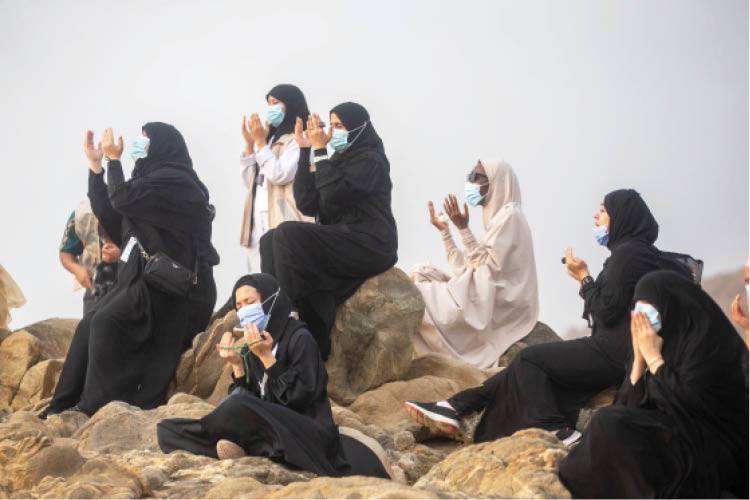Most of this year’s hajj pilgrims had left Makkah, Saudi Arabia by midday Thursday after performing the farewell circumambulation ritual at the Grand Mosque.
Saudi Arabia’s security, hajj and health officials confirmed that all their plans were successfully carried out, and no serious health issues were recorded.
- COVID-19: ‘How delta variant spreads rapidly in communities’
- Vigilantes to lead fight against bandits in Sokoto – Tambuwal
Before the closing circumambulation of Al-Kaaba, the pilgrims threw pebbles at the three pillars in Mina, with agents representing all the government’s hajj-related authorities monitoring the stoning process.
Throughout the ritual, the pilgrims abided by the precautionary measures. To ensure their safety, the pilgrims performed their second-day ritual in organized groups.
Pilgrims normally spend three days in Mina for the Days of Tashreeq. However, it is permissible to stay for two days on the condition that a pilgrim leaves before the sunset of the second day.
This is called “Ta’ajol,” or hastened Hajj. Otherwise, they should remain in Mina for the third day, when they are required to repeat the stoning ritual.
Beyond the Kingdom’s impressive health and security efforts, some pilgrims were disappointed by the quality of food served by private companies that failed to meet customer expectations.
The Ministry of Hajj and Umrah said on Twitter that inspection tours uncovered a substandard food service in some Hajj camps.
The ministry assured it would impose severe penalties on companies found to be offering a second-rate service after conducting investigations in coordination with the Saudi Food and Drug Authority and the Makkah Municipality.
“We will also consider re-evaluating these private companies. The service providing licenses of these contractors may also be withdrawn,” the ministry said
The Saudi Ministry of Health (MoH) announced that no coronavirus (COVID-19) infections or other illnesses were recorded.
The ministry’s spokesman, Dr. Mohammed Al-Abd Al-Aly, made the announcement on Tuesday during a joint press conference with the Ministry of Interior and Ministry of Hajj and Umrah.
During this year’s Hajj, the MoH treated cases of physical exhaustion along with 651 clinical checkups, 396 emergency cases, 37 cases of heat exhaustion, 26 hospitalization admissions, and six successful cardiac catheterizations.

 Join Daily Trust WhatsApp Community For Quick Access To News and Happenings Around You.
Join Daily Trust WhatsApp Community For Quick Access To News and Happenings Around You.

